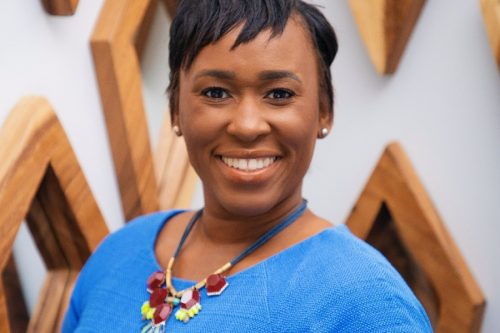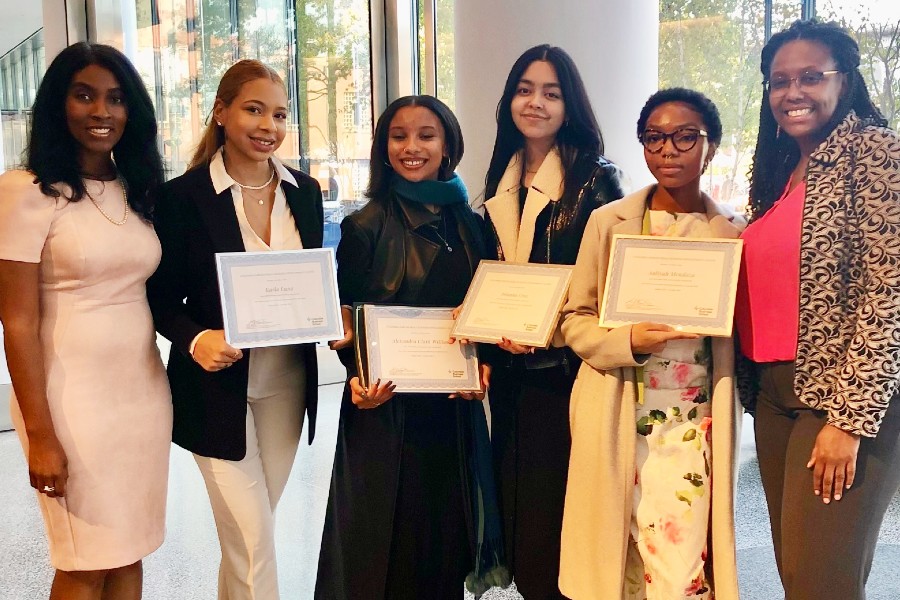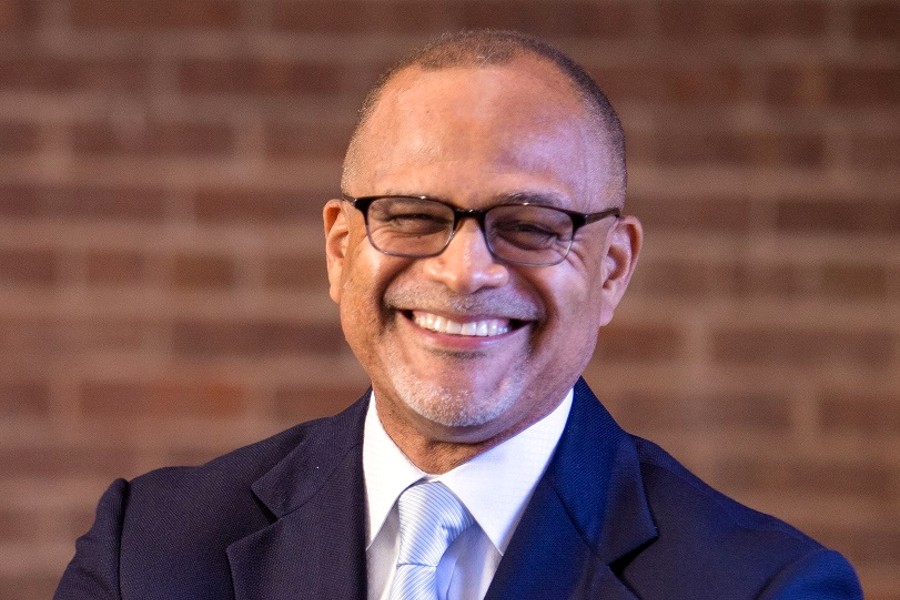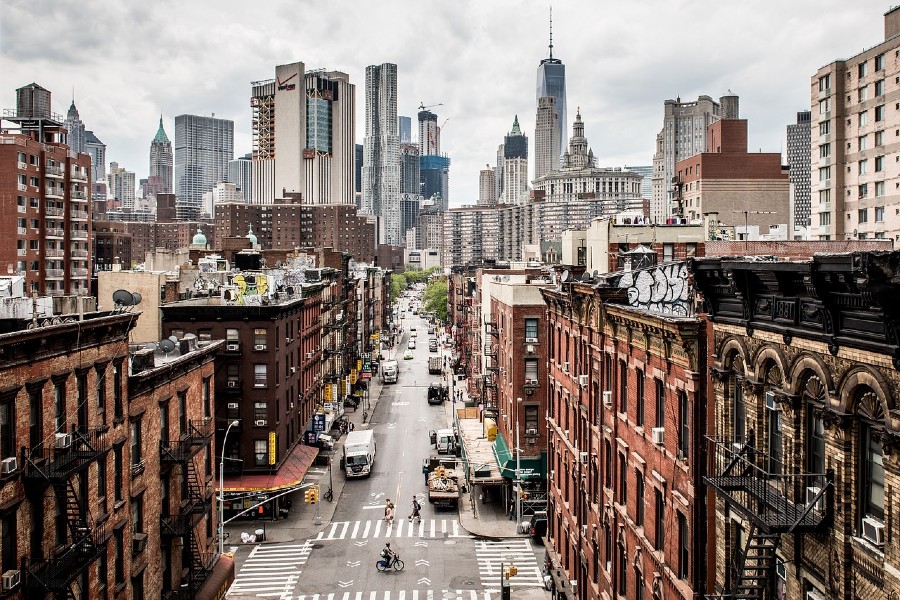
New York City Mayor Eric Adams, New York City Police Department (NYPD) Commissioner Edward A. Caban.
Also, incliduing New York City Department of Small Business Services (SBS) Commissioner Kevin D. Kim, and New York City Office of Nightlife (ONL) Executive Director Jeffrey Garcia today announced the launch of “Coordinating a United Resolution with Establishments” (CURE) — a new process for NYPD, SBS, and ONL to improve public safety responses to nightlife establishments and more equitably engage with nightlife business owners.
The new CURE process replaces the NYPD’s “Multi-Agency Response to Community Hotspots” (MARCH) — an initiative created by the Giuliani administration that conducted unannounced inspections of nightlife establishments in response to neighborhood complaints. The new CURE process requires precincts to establish direct, in-person communication with business owners and managers in conjunction with ONL, making them aware of potential violations and conditions of concern, and providing multiple opportunities for local business owners to correct issues before enforcement actions are taken. The transformative, engagement-first approach aligns with core pillars of Mayor Adams’ “Rebuild, Renew, Reinvent: A Blueprint for New York City’s Economic Recovery,” augmenting the impact of other successful initiatives, such as “Small Business Forward,” that save small businesses time and money while upholding public safety and health standards.
“As mayor of the city that never sleeps, I know that this is a 24-hour city, and we need to support the nightlife businesses that keep this city vibrant. But noise, trash, and crime can disrupt local residents, and complaints can lead to unannounced inspections that shutter businesses — for a night, a week, or permanently. We must protect public safety, while ensuring businesses can remain open and New Yorkers can still dance in the dark, and that’s why we’re launching CURE: Coordinating a United Resolution with Establishments,” said Mayor Adams. “Today, we are changing the way we engage with nightlife establishments by opening direct lines of communication with local businesses and giving them a chance to correct issues before enforcement takes place. New York City is the nightlife capital of the world, and this new initiative will help us protect public safety, ensure better quality of life, and keep business doors open for all to enjoy.”
“An engagement-first approach is the way forward for the NYPD and our partners as we address community concerns within New York City’s nightlife arena,” said NYPD Commissioner Caban. “By collaborating with our city’s many local business owners and managers, this new process will enable our police officers to build trust and strengthen relationships throughout the five boroughs and further the NYPD’s mission of preventing crime and disorder while enhancing quality of life.”
“Mayor Adams made it clear on day one: small businesses will drive our city’s economic recovery,” said SBS Commissioner Kevin D. Kim. “I’m thrilled to see ONL’s years of hard work culminate in this announcement. This engagement-first approach in solving issues between nightlife establishments and the community will help more bars, restaurants, and nightclubs thrive while maintaining public safety. CURE is another promise fulfilled on the road to making New York City ‘City of Yes’ for all small businesses.”
“CURE is clear — it is a transformative moment for the nightlife community, and I am proud that the Office of Nightlife will be able to help even more with this new engagement-first approach. Public safety extends beyond law enforcement,” said ONL Executive Director Jeffrey Garcia. “A thriving nightlife industry keeps the lights on, with more eyes on the street. Most importantly, without worrying about unannounced multi-agency enforcement, nightlife venues will be set up to succeed and able to focus on what they do best: run their businesses and create more jobs.”
Under the former MARCH program, nightlife establishments — which include bars, restaurants, music venues, and dance clubs — could have faced unannounced, nighttime, multi-agency inspections led by the NYPD, and supported by a broad array of inspectors from the Fire Department of the City of New York, the New York City Departments of Buildings (DOB), the New York City Department of Environmental Protection (DEP), the New York City Department of Health and Mental Hygiene (DOHMH), and the New York State Liquor Authority (SLA). Since 2020, 44 MARCH operations have included an average of 17 inspectors, resulting in major disruptions for local businesses and patrons. Just two MARCH inspections have been conducted since July 1, 2022.
CURE ensures that the only venues subject to significant enforcement action are those which have demonstrated a clear and intentional disregard for community concerns by failing to heed multiple opportunities for cooperation with the NYPD and non-enforcement personnel at ONL. The new initiative requires a series of steps to be taken at the precinct level in coordination with ONL, before inspections can be approved by the NYPD’s Patrol Services Bureau, including in-person daytime visits, written documentation of incidents of concern, and in-person meetings between business owners and local precinct officials.
In cases involving complaints from local residents, ONL’s Mediating Establishment and Neighborhood Disputes NYC free mediation program will be engaged to help improve neighborhood relations through the support of neutral, third-party mediation. The program is administered in partnership with the New York City Office of Administrative Trials and Hearings.
As part of the new procedure, NYPD will not initiate city or state interagency inspections outside of the new CURE process. Only agencies relevant to issues observed at CURE-involved establishments may be included in joint-inspection operations with the NYPD, and only on an “as-needed” basis. This procedure does not limit NYPD from any necessary real-time response to address immediate public safety concerns. Furthermore, agencies that have previously participated in MARCH operations, such as the FDNY, DOB, DOHMH, DEP, and SLA will continue to maintain their regular independent inspection processes to maintain compliance and ensure safety.
“The FDNY is happy to participate in this new, more equitable process,” said FDNY Commissioner Laura Kavanagh. “Our fire inspectors will continue to inspect reports of dangerous establishments and keep New Yorkers safe.”
“Our city’s building code regulations for nightclubs and music venues are in place to keep New Yorkers safe while on the dance floor. This new interagency CURE program incentivizes venue owners to comply with those regulations and resolve any unsafe conditions as quickly as possible, which is music to our ears,” said DOB Commissioner Jimmy Oddo. “The Adams administration is rightfully prioritizing compliance with city regulations, giving owners the opportunity to bring their venues up to code before enforcement actions are taken, so these small businesses can keep the hits playing and the blacklights on.”
“Balancing the important reputation of New York as a vibrant, world-class city that is open for business with a high-quality of life for residents is at the heart of CURE and this strategy will help to ensure that only those businesses that willfully ignore community concerns are the subject of joint enforcement actions,” said New York City Chief Climate Officer and DEP Commissioner Rohit T. Aggarwala. “Thank you to our partners at NYPD, SBS, and ONL for their leadership on this important initiative.”
“Congratulations to the Office of Nightlife and everyone involved in successfully introducing the CURE approach to help enhance nightlife safety in New York City,” said Mayor’s Office of Media and Entertainment Commissioner Pat Swinney Kaufman. “Making this change was a priority for ONL since its inception and throughout its five years at MOME, and we are so pleased to see it reach the finish line. Its establishment aligns with many of the office’s efforts to make New York City’s nightlife industry safer, more equitable, and accessible to all.”
“New York’s vibrant nightlife establishments are cultural hubs and creative incubators, platforms where artists and performers can connect with audiences in new and exciting ways, and sanctuaries for communities of all kinds. In short, they’re where a lot of New York City’s creative mojo and community spirit are nurtured,” said New York City Department of Cultural Affairs Commissioner Laurie Cumbo. “CURE promises to be a transformational reform effort, creating a healthier, more productive dynamic between the city and our nightlife community. A big congratulations to the NYPD, SBS, the Office of Nightlife, and the nightlife sector on rolling out this exciting new program. I’ll see you on the dance floor!”
“New York City’s nightlife scene supports 300,000 jobs and has an economic impact of over $35 billion. Mayor Adams’ CURE enforcement process will support this engine of economic growth by ensuring people feel safe in all 25,000 plus nightlife establishments,” said New York State Assemblymember Jenifer Rajkumar. “We will bring together the NYPD, SBS, and ONL to coordinate responses to resolve every safety issue swiftly and effectively, while at the same time forging relationships with business owners. Through this work, everyone can have a fun and safe time taking in all the vibrant nightlife New York has to offer.”
“New York City’s nightlife industry has made tremendous strides bouncing back from the COVID-19 lockdowns. As ‘The City That Never Sleeps,’ New York City’s nightlife is a key component of the city’s economic engine that generates thousands of jobs as well as billions in economic revenue,” said New York City Councilmember Marjorie Velázquez. “The launch of the CURE program will help further and nurture that economic growth by having business owners’ work alongside the NYPD to keep patrons safe as they enjoy all the eclectic nightlife entertainment that New York City has to offer.”
“The evolution from MARCH operations to the CURE process took many years of collective effort to achieve,” said Ariel Palitz, former director, ONL. “I am proud to have led the effort and help lay the foundation to reform these operations and include non-enforcement solutions that work toward resolving quality of life and safety issues. This reform will also help to improve the relationship between city agencies and hospitality businesses. Reimagining MARCH operations was a top priority for me and the Office of Nightlife since day one and I’m happy the day has finally come to announce this important step forward that will help improve fairness and as well as the quality of nightlife and how it’s enforced for years to come.”
“Whether it’s quality of life or public health and safety, we’ve long urged the City of New York to work collaboratively with bars, nightclubs, and restaurants to address and resolve these issues instead of using unnecessary enforcement actions that jeopardize successful outcomes and erode trust between government, small businesses, workers, and customers,” said Andrew Rigie, executive director, New York City Hospitality Alliance, and chairperson, New York City Nightlife Advisory Board. “That’s why we look forward to working with Mayor Adams and the Office of Nightlife on this important transition from implementing the heavy-handed MARCH strategy to using the new CURE solutions in the city’s nightlife sector.”
“The MARCH raids directly impacted Friends and Lovers, a venue founded by Diana Mora, Nightlife United’s Co-Founder,” said Varghese Chacko, founding partner and president, Nightlife United. “We’re hopeful for the government’s transition to a more collaborative process so local business owners will have a fair chance to remedy issues. Nightlife United is grateful to the Office of Nightlife for shepherding this critical change with all of the city agency stakeholders.”
“Our owners want to be good neighbors and community partners but it’s too often the case that miscommunication and a lack of understanding lead to confrontation,” said Sandra Jaquez, president, New York State Latino Restaurant Bar & Lounge Association. “That’s why we are thrilled to see this program—set up to bridge community and business during moments of conflict –come to fruition. We want to thank Mayor Eric Adams, SBS Commissioner Kevin D. Kim, and Executive Director for the Office of Nightlife Jeffrey Garcia for prioritizing mediation and collaboration over punitive measures. I’m confident that this program will improve community relations and help businesses alike.”
“As the architect of the repeal of the ‘cabaret law’ and the creation of the Office of Nightlife, I have witnessed and heard the challenges that arise when there’s a lack of synergy between local businesses, the community, and law enforcement,” said Rafael Espinal, executive director, Freelancers Union. “The initiatives announced today are taking significant steps toward reforming heavy-handed processes and building a framework that encourages collaboration that respects and supports our communities. I applaud the new Executive Director of Nightlife, Jeffrey Garcia for his pivotal role, Mayor Eric Adams, and SBS Commissioner Kevin D. Kim for their leadership. This is indeed a positive day for our city’s nightlife.”
“We applaud the administration for a new era of responsible enforcement of our city’s laws,” said Greg Miller, lead advocate, LegalizeDance.Org. “We must continue to find progressive ways to support nightlife and our marginalized communities so our city can thrive.”
“For a long time, we have been advocating for a nuanced reform in the interaction between the NYPD and nightlife establishment, understanding that it is essential for fostering a safer and more vibrant community,” said Junior Martinez, president, The Hoodspitality Group. “By promoting collaboration over confrontation, we can cultivate an environment that prioritizes both public safety and the cultural richness of our city’s nightlife. We are pleased that this administration recognizes the importance of strengthening the relationship between law enforcement and small business owners in the hospitality and nightlife industry.”
“…a significant win for minority business owners in NYC….”
“The Black Institute’s work on Cabaret 2.0 in 2019 first highlighted the disproportionate enforcement of MARCH and laid the groundwork for CARA to advocate for its 200+ minority members directly affected by MARCH’s policies,” said Annarrisa Nathoo, executive director, Caribbean American Restaurant Association (CARA). “I am proud to stand here today to be a part of the reform on MARCH. I want to thank the Adams administration for hearing the plights of the minority small business community and taking action as quickly as they have. I don’t think the administration could have done better than appointing Jeff Garcia as the new Executive Director for the Office of Nightlife, and I am confident that under his leadership, we will make strides toward equity for black and brown business owners. These are monumental steps being taken for the hospitality and nightlife industry and a significant win for minority business owners in NYC.”
“Small restaurants, lounges, bars, and clubs have lost their businesses following MARCH operations under previous administrations,” said Fernando Mateo, former partner, La Marina. “When there were no options to help mediate these situations, any incidents were unfairly attributed to businesses in the community. I personally experienced these challenges at the hands of enforcement agencies, which resulted in my business being shut down and losing millions of dollars. This story was all too common in communities of color and we will not forget the damage that was caused. But we are moving forward — every department should have a leader with experience in the field, and Mayor Adams has gotten it right by bringing in Jeff Garcia to help set a new course.”
“… the breakdown in communication between business, community and NYPD…”
“As a restaurant owner for 10 years in Inwood, I have personally experienced the breakdown in communication between business, community and NYPD, particularly after an incident in the neighborhood,” said Ismael Garcia, owner, Made in Mexico. “With today’s announcement, I’m confident we are laying the groundwork and setting up the infrastructure to change the existing fractured process and create a foundation for everyone to work together towards one common goal – which is to make New York City the safest and most vibrant city in the world. I cannot understate how important it is to have people in government that understand the plight of small business and understand what it takes to run a small business. We have that in Jeffrey Garcia, and I want to thank him for his leadership. I also want to thank our great Mayor, Eric Adams and SBS Commissioner Kevin D. Kim. Today is a good day for small, minority-owned businesses.”
“We look forward to a future of equity and inclusion …”
“As a co-founder and CEO of the Black Restaurant Coalition, I have heard from countless members about the MARCH visits they encountered and how their business has been affected,” said Bryant K. Postell Sr, CEO, Black Restaurant Coalition. “We have been waiting for the day when our over 230 Black and minority small business owners will see change, and with this reform on MARCH, the day has come. We thank Mayor Adams and the administration for their work behind this reform and congratulate Jeff Garcia on his well-deserved appointment as executive director of the Office of Nightlife. We look forward to a future of equity and inclusion for our Black and minority small business owners in New York City hospitality.”
“We applaud Mayor Adams and the Office of Nightlife for this much needed overhaul of the city’s nightlife management practices,” said Dave Rosen, co-founder, Brooklyn Allied Bars and Restaurants. “We look forward to working with the Office of Nightlife to introduce this new CURE process to our members across Brooklyn.”
Photo credit: NYC.gov.
- Wells Fargo Shares Economic Impact From Open For Business Fund
- Harlem Rallies For Kamala Harris: A Historic Gathering Of Black Women Leaders
- In Conversation With Ketanji Brown Jackson At The Apollo Theater In Harlem
- Chancellor David C. Banks Appoints Simone Hawkins As Deputy Chancellor For Early Education
- Vibrant Summer Styles Are Making A Comeback 2024
Become a Harlem Insider!
By submitting this form, you are consenting to receive marketing emails from: Harlem World Magazine, 2521 1/2 west 42nd street, Los Angeles, CA, 90008, https://www.harlemworldmagazine.com. You can revoke your consent to receive emails at any time by using the SafeUnsubscribe® link, found at the bottom of every email. Emails are serviced by Constant Contact









